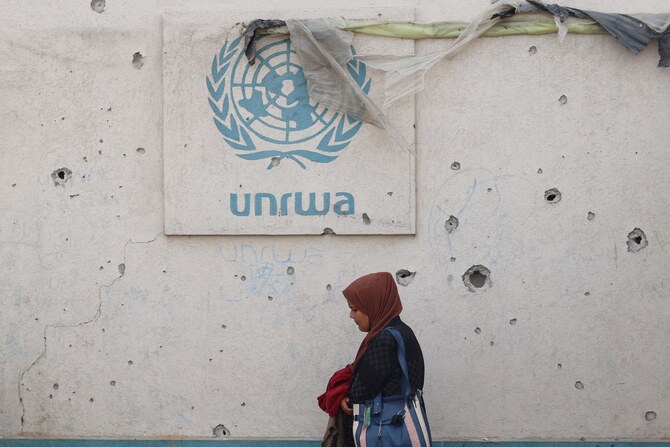LONDON: Israel has reportedly purchased advertising space on Google to discredit the UN Relief and Works Agency for Palestine Refugees in the Near East, according to a recent investigation by Wired.
The investigation revealed that the Israeli Government Advertising Agency paid Google to place ads that accuse UNRWA of having links to Hamas.
These ads reportedly appear at the top of search results for terms such as “UNRWA” and related queries, aiming to undermine the agency’s credibility.
“There is an incredibly powerful campaign to dismantle UNRWA,” said Mara Kronenfeld, executive director of UNRWA USA.
“I want the public to know what’s happening and the insidious nature of it, especially at a time when civilian lives are under attack in Gaza.”
In January, Israel accused 12 members of UNRWA’s 30,000-strong staff of participating in the Oct. 7 Hamas attacks on southern Israel.
However, these allegations were largely dismissed following an independent UN investigation, which criticized Tel Aviv for failing to provide any supporting evidence.
Despite the lack of substantiation, the accusations led several countries to suspend funding to UNRWA during a critical period in the conflict.
Most of these donor nations have since resumed their contributions, despite Israeli pressure to defund and dismantle the agency.
The Wired investigation suggested that Israel’s ad campaign began shortly after these allegations surfaced.
From May to July, when users searched for over 300 terms related to UNRWA, Israel’s ads appeared 44 percent of the time, compared to UNRWA USA’s ads, which appeared only 34 percent of the time.
The Israeli ads directed users to a government-run website alleging that UNRWA had failed to declare whether employing Hamas members violated its neutrality.
According to Wired, Google had removed some Israeli ads in January that misleadingly bore titles like “UNRWA for Human Rights” after complaints from the aid agency.
However, new ads with different titles have since resumed, despite repeated requests from UNRWA staff to remove what they consider a misinformation campaign.
Google has maintained that the campaign is legitimate, arguing that governments are permitted to run campaigns and that the company reserves the right to block ads on search topics it deems “sensitive” and non-compliant with its policies.
Some Google employees have expressed concerns that the company chose not to block these ads due to potential implications for future business with Israel.
Despite Israel’s efforts to undermine UNRWA, the agency reported a record 78,000 donors by August of this year, the highest since its founding in 1949.
UNRWA was established in the aftermath of the Nakba — the displacement of 750,000 Palestinians during the creation of Israel — to provide healthcare, education, and humanitarian aid to Palestinian refugees in Gaza, the West Bank, Jordan, Syria, and Lebanon.
Today, UNRWA is the second-largest employer in Gaza after Hamas, with 13,000 of its 30,000 employees based in the Gaza Strip.
The agency operates 183 schools, 22 health facilities, and seven women’s centers, serving a vital role in the besieged enclave. UNRWA’s schools educate 286,645 students in Gaza, and its medical facilities receive 3.4 million visits per year, according to UN data.




























